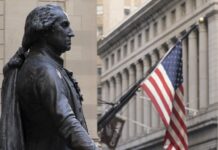The Eleventh Circuit Court of Appeals has denied a request from Palm Beach County and the City of Boca Raton for an en banc (by all the appellate judges) review of a decision by a three-judge panel that previously struck down laws in 2020 that ban counselors from providing and minor clients and their families from receiving any counsel to reduce or overcome unwanted same-sex attractions, behaviors, or gender confusion.
The case of Otto, et al v. City of Boca Raton, FL et al, found that the laws were both content and viewpoint based and violate the First Amendment right to free speech. This is the first federal Court of Appeals decision on such laws since the 2018 U.S. Supreme Court decision in National Institute of Family & Life Advocates v. Becerra (NIFLA).
Liberty Counsel represents Dr. Robert Otto, LMFT and Dr. Julie Hamilton, LMFT and their minor clients who challenged the constitutionality of ordinances enacted by the City of Boca Raton and Palm Beach County which prohibit minors from voluntary counseling from licensed professionals. These licensed therapists provide life-saving counseling to minors who desperately desire to conform their attractions, behaviors, and gender identities to their sincerely held religious beliefs.
Judge Grant, joined by Judges Branch and Lagoa, wrote a concurring opinion expressing agreement with the denial of review.
They wrote, “The perspective enforced by these local policies is extremely popular in many communities. And the speech barred by these ordinances is rejected by many as wrong, and even dangerous. But the First Amendment applies even to—especially to—speech that is widely unpopular…The panel opinion thoroughly explains why a fair-minded and neutral application of longstanding First Amendment law dooms the ordinances.”
“Because ordinary First Amendment law will displace these speech bans, creative thinking is required to save them. In its attempt to persuade the reader otherwise, the dissent misreads First Amendment precedents. Take National Institute of Family & Life Advocates v. Becerra (NIFLA). Judge Rosenbaum cites that case as showing that the Supreme Court permit[s] governments to impose content-based restrictions on speech with persuasive evidence . . . of a long (if heretofore unrecognized) tradition to that effect.”
In today’s decision, the court recognizes that National Institute of Family & Life Advocates v. Becerra (NIFLA) abrogated cases regarding help to reduce or eliminate unwanted same-sex attractions, behaviors, or gender confusion.
“Read correctly, NIFLA emphasizes that content-based regulation is heavily disfavored and that there is no tradition of regulating professional speech.”
“Those rebukes should always be enough to induce caution. But they carry even more force here because in NIFLA the Supreme Court was specifically criticizing other circuit courts’ approval of ‘professional speech’ bans just like the ones we now consider…(upholding a therapist speech ban virtually identical to the ones here after concluding that ‘a licensed professional does not enjoy the full protection of the First Amendment when speaking as part of the practice of her profession’), and Pickup v. Brown, (upholding a similar ban, again on the rationale that it regulates conduct, not speech. Nor can we forget that the Court specifically ‘stressed the danger of content-based regulations in the fields of medicine and public health.’”
The appeals court continued, “The dissent suggests that we give special treatment to speech restrictions prohibiting ‘licensed professionals from practicing, on populations from whom informed consent cannot reliably be obtained, treatment techniques that (1) do not meet the prevailing standard of care, (2) are not shown to be efficacious, and (3) are associated with a significant increase in the risk of death’—in short, restrictions that apply only to what the dissent calls ‘Life-threatening Treatment Techniques.’ This is not a category at all. It is a description of disfavored speech that bears no resemblance to the other analytical brackets set out by the Supreme Court. It privileges the current views of certain professional organizations. And it requires significant work to even decipher. As a ‘category,’ this misses the constitutional mark by a mile.”
“The government cannot be trusted to prohibit only bad speech. And our role as an independent judiciary is to enforce the First Amendment, not to decide which ideas are worthy of immunity from government regulation—or which professional groups can make that decision for us.”
“What this Circuit has done—indeed, all it has done—is uphold the protections of the First Amendment for unpopular speech. That can be hard to do. But if the First Amendment only protected speech that judges and politicians approved of, it would not be of much use. We concur in the Court’s decision not to rehear this,” wrote the court.
Four of the 11 active judges joined in written dissents and would have voted to grant rehearing of the three-judge panel decision. However, a majority of the court voted to deny the rehearing request and the original decision stands.
Liberty Counsel Founder and Chairman Mat Staver said, “This is a huge victory for counselors and their clients to choose the counsel of their choice and be free of political censorship from government ideologues. This case is the beginning of the end of similar unconstitutional counseling bans around the country. Under the laws that were struck down, a counselor could encourage a client to take life-altering hormone drugs or even undergo invasive surgery to remove healthy body parts but could not help a client who seeks to overcome unwanted same-sex attractions, behavior, or confusion. Clients have the right to self-determination. They have the right to select a counselor. Counselors are like a GPS helping the client to reach the desired objective. Yet, these counseling bans injected a government mandated ideology to override the counselor and the client. These laws clearly violate the First Amendment.”
















